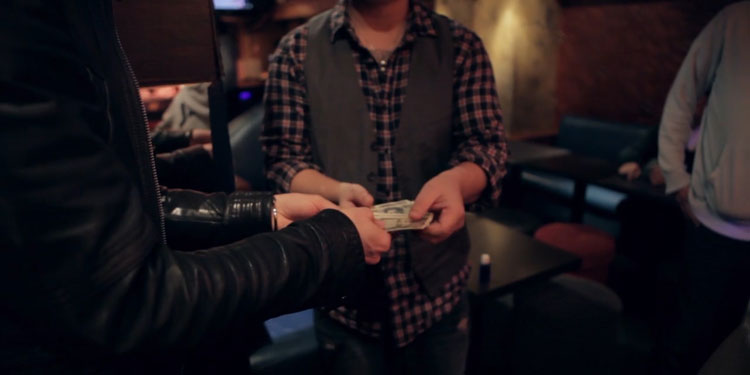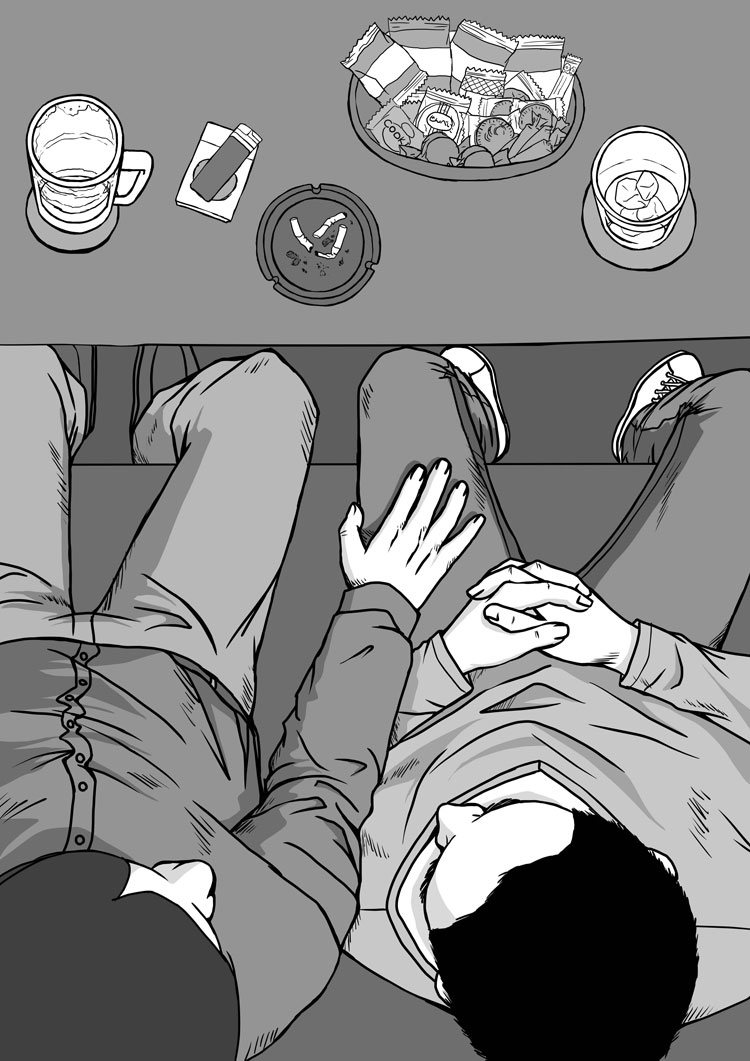
Director: Itako
Running Time: 76 mins
Certificate: NR (US)
Release Date: July 12th 2017 (Outfest Screening)

If there’s a stereotype about being gay in Japan, it’s that the subject is taboo and hidden. However, that doesn’t mean there isn’t a large, vibrant LGBT community in the country. Boys For Sale looks at one aspect of that – the ‘Urizens’ – the equivalent of rent boys, who work in Tokyo’s main gay district, Shinjuku 2-chome.
The documentary mixes interviews with a variety of urizen with anime style representations of what they’re talking about. It’s a very effective way of presenting their words, as it helps bring it to life in ways just listening to their voices probably couldn’t.
Some of the men are disguised and using aliases, while others are happy to be filmed openly talking about their lives. All of the urizen interviewed work in special bars, where gay men go to initially have a drink with a boy of their choosing, before taking them to a hotel or renting a room upstairs to have sex with them. The clients range in age and stature, and some of the urizens are more popular than others, although it’s a profession where you’re considered ancient by 30.
The documentary reveals some unexpected contradictions, such as the men talking about the fun and camaraderie of the job (although most of that happens when they’re not with clients), while also talking about the degradation and some truly unpleasant things that have happened to them. For parts of the film it almost comes across as quite a good job, but at others its quite horrific, and for many of the men it has to become that simultaneously and something they just accept.
What will surprise many is that the majority of the urizen are straight, and they aren’t just saying that because they know clients prefer straight boys. However, when it explains the recruitment procedures – which come across as deliberately trying to trick desperate young men by not really telling what they’ll be doing – it suddenly makes more sense. It’s certainly a situation ripe for exploitation. One of the interviewees is a former rent boy who now helps manage an urizen bar, and he certainly seems to have few qualms about stretching the truth to hire new ‘talent’ or manipulating the ones he’s got.
After an opening that’s more upbeat than you might expect, the film begins to reveal a more complex picture as it progresses. That’s particularly true when it talks to the young straight men about why they got into selling their bodies. There are tales of intractable debt and gambling addiction. Then there are a couple of guys who lost everything in the 2011 tsunami, came to Tokyo and ended up becoming prostitutes as it was the only way to get money and a bed. What may surprise some used to stereotypes about rent boys in the West, is that there’s no mention of drug addiction.
Where the film gets most interesting is when it deals with the intersection of Japanese culture and the world of the urizen. Perhaps most shocking is when it talks about the lack of sex education in Japan, particularly surrounding gay issues, which means that many of the men are badly ill-informed about how STDs are spread, one has never heard of AIDS, and another thinks you can only get HIV by mixing blood. Most of them seem to believe the most effective form of protection from chlamydia and gonorrhoea is insisting the clients shower and wash their genitals properly before sex (although most also use condoms).
Initially I wondered whether Boys For Sale was going to have anything new to add to the previous documentaries about rent boys. However, it proved to be more surprising, sometimes shocking and entertaining than I was expecting. By not judging and showing that there is both good and bad to the urizen’s life, it manages to be surprising illuminating. It certainly doesn’t make it sound like a world most us would like to join, but by the end you can understand both how the men got there and why they stay.
Overall Verdict: By showing both how uniquely Japanese and universal the world of Tokyo’s urizens are, Boys For Sale is a fascinating look at both the good and the bad of their lives.
Reviewer: Tim Isaac
I walked out I was offended by the fact that they thought it was funny rather than exploitive
Straight men fumbling through gay sex isn’t funny it’s insulting. Worst film I’ve seen that the festival in years